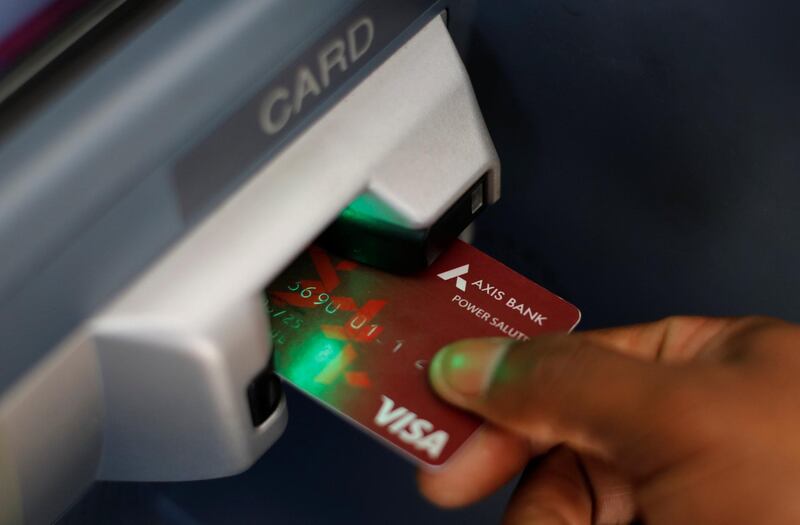Axis Bank is targeting an increased share of the $12 billion annual remittance market between the UAE and India, as the South Asian country’s third-largest privately-owned lender opens an office in Sharjah, its fourth in the UAE.
“From a remittance perspective, it’s about a $12 billion a year market of money moving from here to India,” Rajiv Anand, the bank’s head of retail banking, told The National in an interview ahead of the bank’s inauguration of its Sharjah office on Sunday.
“We have a 20 per cent share of the remittance market. It’s the most profitable part of our business, but our retail business of affluent customers is very profitable too.”
Almost $600bn is remitted by expatriate workers around the world each year to their home countries, according to the World Bank, with money transfer companies such as Western Union generating more than $40bn in annual revenues. India, the world’s second most populous country, is the biggest global recipient of remittances.
_______________
Read More:
Investigators to quiz 31 Indian bank chiefs over $2bn PNB fraud
India’s Axis Bank seeks Gulf expansion with branch in Sharjah
_______________
Nearly $18 billion is sent home by workers in the UAE each year, according to the World Bank, with the majority remitted to Asian countries such as India, Pakistan and the Philippines.
Axis Bank’s office in Sharjah will focus on servicing the Northern Emirates. There are an estimated 650,000 Indians who live in Sharjah, many of who commute to Dubai daily, Mr Anand said.
The bank has two offices in Dubai - including one in the Dubai International Financial Centre, from which it focuses on corporate banking and financing trade between India and the UAE – and one in Abu Dhabi.
Bankers at Axis may have their work cut out for them, as many Indian banks such as ICICI, Bank of Baroda and Yes Bank compete with them in the UAE, with local banks such as First Abu Dhabi Bank building presences in India.
Still, Mr Anand says there is room for the bank, which has about 130,000 UAE-based customers, to expand further. Axis, he said, has grown its customer base rapidly in recent years at a rate of 20 per cent a year. The fact that a number of international banks have stopped chasing the trade corridor between India and the UAE has created more opportunities for Axis, he added.
“Personal banking transactions, including remittances between the UAE and India, have been growing continuously,” Mr Anand said.
“[The] opening of the representative office in Sharjah will further extend our presence in the UAE and provide clients easier access to the bank’s services in the region.”
The bank, which opened its first office in the UAE in 2007, has tie ups with 31 banks and exchanges in the UAE, and acts as a correspondent bank in India for them for transfers made from the emirates.





